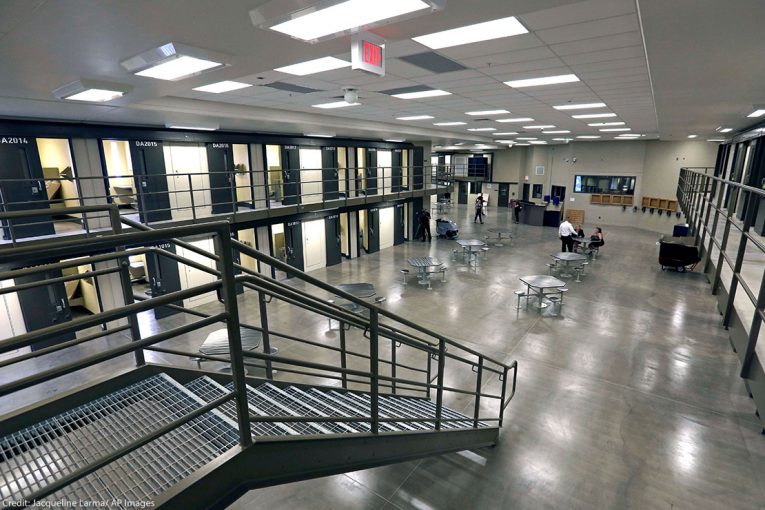

By Perla Brito and Alexis Rios-Jimenez
OAKLAND, CA – Growing Justice will provide healthy food to the prison population, while preparing incarcerated and formerly incarcerated individuals for employment in indoor farming, according to Impact Justice, adding indoor farming is becoming the future of agriculture and is expected to be a billion-dollar company by 2026.
President of Impact Justice, Alex Buskansky, argues, “People in prison face substantial challenges, including poor and limited food choices. For those released, employment options are limited and healthy food remains difficult to obtain.”
The indoor farms will be placed in Central California Women’s Facility and Impact Justice’s Oakland location to give incarcerated and formerly incarcerated individuals the opportunity to use fresh greens in the prison kitchens and give a glimpse into job training.
Impact Justice said the hydroponic farms will be built inside shipping containers with grow lights and irrigation systems included.
By partnering with growing companies such as Square Roots, Bowery Farming, and Fork Farms, Growing Justice is able to create strong ties and give incarcerated and formerly incarcerated individuals even better job opportunities, supporters claim.
The director of Impact at Square Roots said, “Square Roots believes new opportunities in high-tech agriculture should be available to everyone, which is why we welcome the opportunity to work with Impact Justice to identify ways we can offer incarcerated and formerly incarcerated people training opportunities and pathways to employment.”
Funding for Growing Justice comes from a California Department of Corrections and Rehabilitation (CDCR) Innovations grant, and an anonymous donor.
Brantley Choate, director of CDCR’s Division of Rehabilitative Programs, noted, “the innovative programming grants allow CDCR to explore varying types of rehabilitative programming for the incarcerated population.”
Impact Justice is partnering with Skout Strategy to build these indoor farms and hopes Growing Justice can be a big step forward in helping formerly incarcerated Black and Brown individuals start their own indoor farming business.
George Carter, CEO and founder of Skout Strategy, agrees, emphasizing, “creating access to food, rebuilding our food system, and giving individuals a certifiable skill set they can use when they are released will help restore, liberate, and rebuild lives and communities. It’s one of the inspiring ways that Impact Justice is dismantling systems of oppression and mitigating the effects food injustice and other inequities have on communities.”
Impact Justice is also working with Agritecture, one of the leading CEA companies, to integrate a six-month training program in prisons that will blend classroom education with experiential learning where incarcerated individuals will help lead the indoor farm.
Lead agronomist of Agritecture, David Ceaser, said he’s incredibly proud to be a founding partner of an initiative that is actively striving to further the nutritional and economic benefits of vertical farming to incarcerated individuals looking at a second opportunity at life beyond a prison cell.